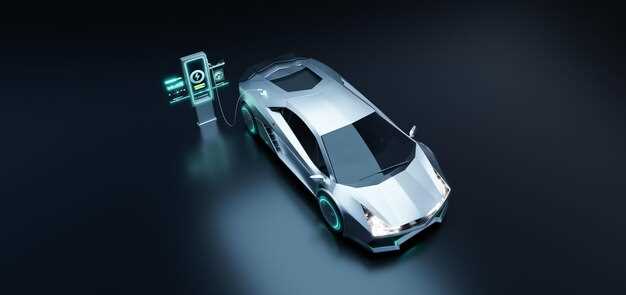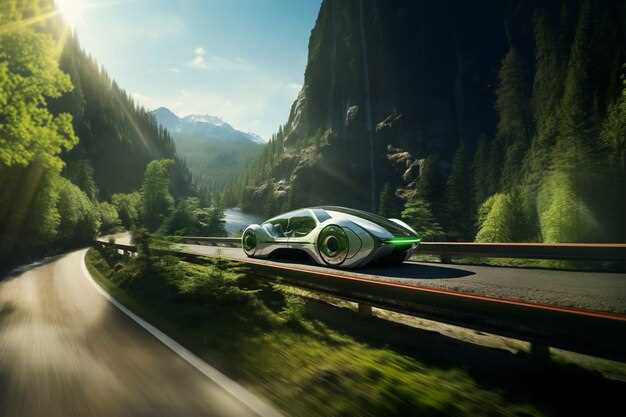
The automotive landscape is undergoing a significant transformation as electric sports cars emerge as formidable contenders in the realm of performance. Traditionally dominated by internal combustion engines, the sports car category is witnessing a paradigm shift, driven by advancements in electric vehicle technology. These cutting-edge vehicles are not only challenging the traditional notions of speed and agility but are also setting new benchmarks for what performance entails in the modern era.
Electric sports cars are equipped with powerful electric motors that deliver instantaneous torque, allowing for rapid acceleration and impressive top speeds. This immediate response enhances the driving experience, giving enthusiasts a taste of performance previously reserved for high-end gasoline engines. As manufacturers invest heavily in research and development, electric sports cars are continuously evolving, pushing the boundaries of innovation and sustainability.
Moreover, the integration of advanced technologies such as regenerative braking, intelligent traction control, and sophisticated battery management systems is elevating the performance standards across the board. These innovations not only optimize the performance characteristics of electric sports cars but also contribute to enhanced efficiency and reduced environmental impact. As the industry embraces this electric revolution, it is clear that the future of high-performance driving is not just electric; it is redefined.
How Electric Sports Cars Achieve Unmatched Acceleration
Electric sports cars leverage advanced electric powertrains to deliver exceptional acceleration that surpasses traditional gasoline-powered vehicles. The primary factor contributing to this remarkable performance is the instantaneous torque provided by electric motors. Unlike internal combustion engines that require time to build power, electric motors deliver maximum torque from a standstill, allowing for rapid initial acceleration.
Another significant advantage is the strategic placement of the battery pack in electric cars. This low center of gravity enhances stability and traction, enabling better grip during acceleration. The design of electric sports cars often includes all-wheel drive systems, which distribute the power effectively to all four wheels, further improving acceleration times.
Additionally, regenerative braking systems found in electric cars help maintain optimal battery performance while contributing to acceleration efficiency. By capturing energy during braking, these systems allow for extended driving ranges and improved power management, which plays a crucial role in performance consistency.
Advanced software algorithms optimize power delivery, controlling the electric motors with precision. This technology allows electric sports cars to adapt to different driving conditions in real-time, ensuring that power is used efficiently for maximum acceleration. The combination of these innovations positions electric sports cars at the forefront of performance standards in the automotive industry.
The Role of Battery Technology in Enhancing Performance

Battery technology plays a crucial role in defining the capabilities and performance of electric sports cars. The advancement of high-energy-density batteries allows manufacturers to produce vehicles that not only accelerate rapidly but also sustain high performance over extended periods.
Modern lithium-ion batteries are engineered to deliver significant power output while maintaining a lightweight profile. This combination results in improved acceleration and a higher top speed, making electric sports cars competitive with traditional gasoline-powered vehicles.
Moreover, the development of fast-charging technologies has substantially reduced the downtime associated with electric cars, enabling drivers to recharge quickly during long journeys. Innovations such as solid-state batteries promise even higher performance levels, offering greater energy density and reducing the risk of thermal runaway, which is a crucial factor for safety and performance reliability.
Additionally, regenerative braking systems leverage battery technology to enhance performance by converting kinetic energy back into stored energy during deceleration. This feature not only boosts efficiency but also contributes to instantaneous torque delivery, a hallmark of electric sports cars that elevates the driving experience.
In summary, the evolution of battery technology is integral to the performance of electric sports cars, ensuring that they meet the demanding expectations of enthusiasts while paving the way for the future of automotive innovation.
Comparing Handling and Stability of Electric vs. Traditional Sports Cars

The handling and stability of sports cars play a crucial role in defining their performance on the road. Electric sports cars leverage their unique design and technology to achieve superior handling characteristics compared to traditional internal combustion engine (ICE) vehicles. One significant advantage of electric sports cars is the placement of their battery packs, often located low in the chassis. This low center of gravity enhances stability, allowing for improved cornering capabilities and reduced body roll.
Furthermore, electric vehicles (EVs) benefit from instantaneous torque delivery, which contributes to agile acceleration and responsiveness. This feature allows drivers to engage with the vehicle’s performance more intuitively, resulting in a more exhilarating driving experience. Traditional sports cars, while known for their power and agility, often require a more complex power delivery system that may not match the immediacy of electric performance.
Another factor influencing handling is the introduction of advanced electronic systems in electric sports cars. Features such as torque vectoring and adaptive suspension systems frequently enhance performance, allowing for real-time adjustments to optimize grip and stability during varied driving conditions. Traditional sports cars may implement similar technologies, but the integration in electric models often comes from a more sophisticated software approach, allowing for enhanced clarity and precision during dynamic driving maneuvers.
The driving experience further differentiates electric from traditional models. Most electric sports cars provide a seamless driving experience, with fewer moving parts translating to less mechanical noise and vibration. This results in better feedback from the road and a clearer connection between the driver and the vehicle, thus enhancing the overall performance perception.
Ultimately, while traditional sports cars have a rich heritage and appeal, electric sports cars are rapidly redefining performance standards in terms of handling and stability. With ongoing advancements in technology and design, electric models are poised to push the boundaries of what performance truly means in the automotive world.



